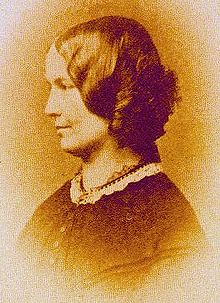 Born on April 21, 1816, in Yorkshire, England, Charlotte Bronte was the third among six Bronte children. Following the death of their mother, who passed from cancer in 1821, Charlotte and her siblings were primarily raised in a very strict and religious household by their father, Reverend Patrick Bronte, and their late mother’s sister, Elizabeth Branwell. In 1824, Charlotte was sent to the Clergy Daughters’ School at Cowan Bridge along with her two eldest sisters, Maria and Elizabeth, as well as her younger sister, Emily. While there, Charlotte suffered from progressively poor physical health due to the school’s harsh environment - her two elder sisters, unfortunately, did not survive the institution’s bitter cold and poor living conditions. Upon Maria and Elizabeth’s early deaths from tuberculosis, their father removed Charlotte and Emily from the school immediately. Upon Charlotte’s return home to Haworth with her family, she soon took over a more dominant, motherly role to her younger siblings as the oldest surviving Bronte sister. While the Bronte children rarely socialized outside of the home, likely due to their father’s wishes to protect their health, they shared strong bonds with one another through the creation of fictional worlds, chronicling elaborate, imagined lives and tales together. Charlotte and her younger brother, Branwell, were very close, collaborating on writing stories and even entire sagas for the inhabitants of their made up country of “Angria.” In 1831, at the age of 15, Charlotte enrolled at Roe Head to continue her education, where she later returned as a teacher from 1835 to 1838. In the following years, Charlotte went on to become a governess for several English families as a way to be financially independent and self-sufficient. After a failed attempt at opening up their own school, Charlotte self-financed a joint collection of poetry with her sisters as another way of helping them earn their own living. Acutely aware of the prejudice they would experience as female authors, the Bronte sisters took on masculine pseudonyms when sending manuscripts of their first novels to potential publishers. Under the assumed name of “Currer Bell,” Charlotte heavily relied on her own personal and professional experiences to write her second novel, Jane Eyre. It became an instant success upon its publication in 1847. Critics and celebrated authors lauded the novel as innovative and daring due to its first-person, feminine perspective and feminist views of society’s treatment of women at the time. While Charlotte eventually published other novels, they never achieved the same level of success or “shock factor” as Jane Eyre. Many attributed her inability to write due to her sisters and brother’s tragic deaths, one after the other, over the course of two short years. During this time, upon her publisher’s encouragement, Charlotte started to visit London where she revealed her true identity as a woman author, and moved around various literary circles. She never stayed away from home for too long, however, returning to Haworth to care for her aging father. Charlotte eventually married Arthur Bell Nicholls in 1854, after rejecting his initial proposal due to her father’s objection against Arthur’s poor financial status. The following year, she passed away while still pregnant with their unborn child. Her very first novel, The Professor, was published post-humously in 1857. The very same year, her friend and author, Elizabeth Gaskell, published The Life of Charlotte Bronte to honor the writer’s private life and literary legacy. Comments are closed.
|
Archives
July 2017
Categories
All
|
 RSS Feed
RSS Feed